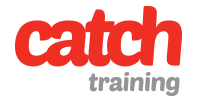Importance Of Food Hygiene During The Pandemic
The main objective is to emphasize the importance of food safety, hygiene and measures related to sanitization during the ongoing pandemic and why it is the need of the hour to adapt to the changes brought about with time. Coronavirus disease or COVID-19 reminds us of the previous horrible pandemics like H1N1 or the Spanish flu pandemic in 1918, killing more than 50 million people in no time.
It has been confirmed by various public health organizations like the World Health Organization and European Food Safety Authority that there is no affirmation that coronavirus can be transmitted through food or from food packaging. However, a recent study verified that the virus could survive on various surfaces for up to three days under situations like humidity or light. Therefore, the transmission of coronavirus or covid-19 can also occur through contaminated surfaces when people touch them and then touch their mouth, nose, or eyes.
Food safety can often be compromised in case of a pandemic. A pandemic leads to disarray amongst the people and they start hoarding food which results in an increase in food production for a short period of time. if there is an increase in food production, if there are transport restrictions, trade disruptions, absence of inspections, shortage in the number of workers, or increase in food deliveries as measures like maintaining distance between the delivery person and customer etc. are often ignored due to which it can cause food safety issues.
What can be done in such a situation?
International public health organizations or food safety organizations and government should maintain confidence in the eyes of citizens regarding the safety of food by enforcing public health measures like wearing masks or ensuring social distancing, executing good hygiene practices or food safety management programs or finding additional ways for conducting inspection or audit services providing health or well-being of the workers.
Handling or consuming the food products can pose a threat or risk for infection so preventive measures should be taken. Measures like washing vegetables and fruits under running water or tap water, avoiding uncooked or raw products of animal origin, ensuring that lids of cans or canned foods are adequately cleaned, and refrigerating perishable foods within 1.5-2 hours of purchasing.
Significance of hygiene practices from farm to your fork
Coronavirus can stay active up to seventy-two hours on inanimate objects after completing its life cycle in a person infected with the coronavirus. Therefore, if the infected person comes in contact with the food, food items can become a corona carrier. These items will contact other individuals who will touch it, and without sanitizing, hands will touch their face. Hence, proper measures like taking up an informative food hygiene course by Catch Training should be taken to take appropriate measures while growing food to restrict this deadly disease from spreading further and creating bigger havoc.
The hour’s absolute need is to turn vigilant and fight this pandemic with necessary safety precautions to bring back normalcy!

